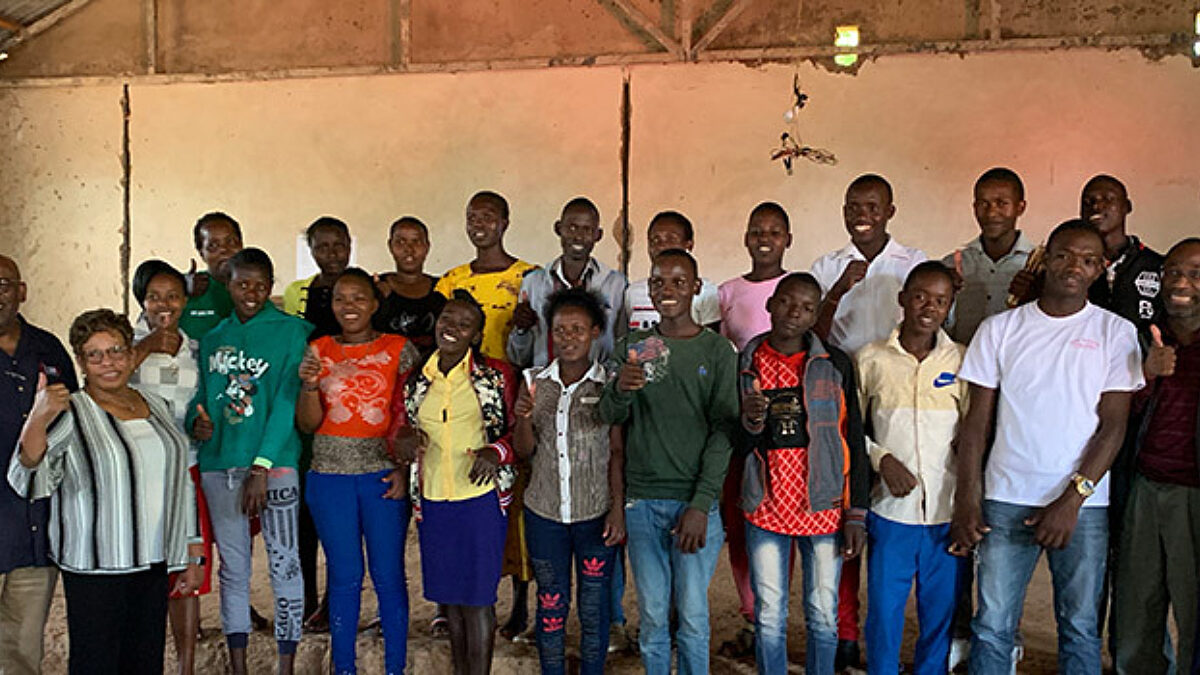
Five from S.C. visit Zoe Ministries in Kenya
By Dr. Clay Faulk
There is an old adage that says, “Give a man a fish and he eats for a day, but give him a fishing pole and he feeds himself forever.”
In the United States, when you hear the word orphan, you may think of a children’s home, foster care or adoption. In Kenya and other poor nations, those who are orphans are considered a drain on the extremely limited resources of a community. Orphans are poor, vulnerable and can easily be abused and exploited. Zoe seeks to change that.
More than 380 million children worldwide are trapped in the cycle of poverty. Orphans and vulnerable children living in extreme poverty are often abused, suffering from sickness and isolated from their community. Handouts and begging help them to survive temporarily. Zoe’s solution addresses all their challenges, across eight areas of life, equipping them to overcome poverty with their own efforts—and for good. Empowering all areas of life is the only way out.
In the summer of 2019, five travelers set out from South Carolina to visit Zoe Ministries in Kenya: Bishop Jonathan Holston and Felicia Holston, the Rev. Ken Nelson, Janice Holiday and myself. We embarked on this journey in an effort to connect. We visited with the people who operate the ministry (Zoe-Kenya director Reagan Kaberia and staff), and people who are served by this ministry in order to connect you with this ministry.
Quite simply, it is the best mission model of sustainable change I have ever seen!
Zoe-Kenya concentrates on helping orphaned children 13-20 years of age. Why these ages? Because we also discovered that in almost every case, a Zoe child was the head-of-household with at least one or more siblings depending on them for food, shelter and care.
When a youth is enrolled, they begin an education process that will take place over the next three years. Zoe gathers youth and children into community groups of 18 to 20 along with a Zoe staffer and a community adult leader. They now have a family and a sense of belonging (many for the first time). They elect a pastor, a president and a secretary from the group for the organization. They learn about health and hygiene, food and housing security, education, child rights, Christian education and how to create an income.
The income component is the key to future success. In the first year, training is conducted on market evaluation, profit margins and risk, while individual businesses begin to profit from issued micro-grants. In the second year, there are two loans issued and paid back to the group bank account. Individual bank accounts and businesses grow in sophistication. By the third year, child-led families run multiple businesses that employ siblings and members of the community.
Zoe has experienced a 99.5 percent success rate for graduates of this three-year program. Most of all, it is changing families who were in crushing poverty. They have now become productive citizens and are able to care for their siblings and other needy people.
Our group had an amazing adventure. We laughed, we cried and our hearts were broken seeing the need, yet our spirits rose to see the hope Zoe brings as a successful mission. While we had a fantastic time and saw breathtaking natural wonders and amazing animals, my favorite moment was when during lunch we had an unexpected visitor, a black and white Colobus Monkey, who jumped up on our table and took some bread. Not an everyday occurrence!
My personal goal is to get you connected with Zoe, for this mission makes a lifelong difference, and there are more orphans who haven’t been helped yet.
Stop giving just a fish. Give a fishing pole and instructions on how to fish. You can contact Zoe on the web at zoeempowers.org. We can arrange a presentation at your church or group gathering by calling the Greenville District Office at 864-233-3611, or email me at [email protected].